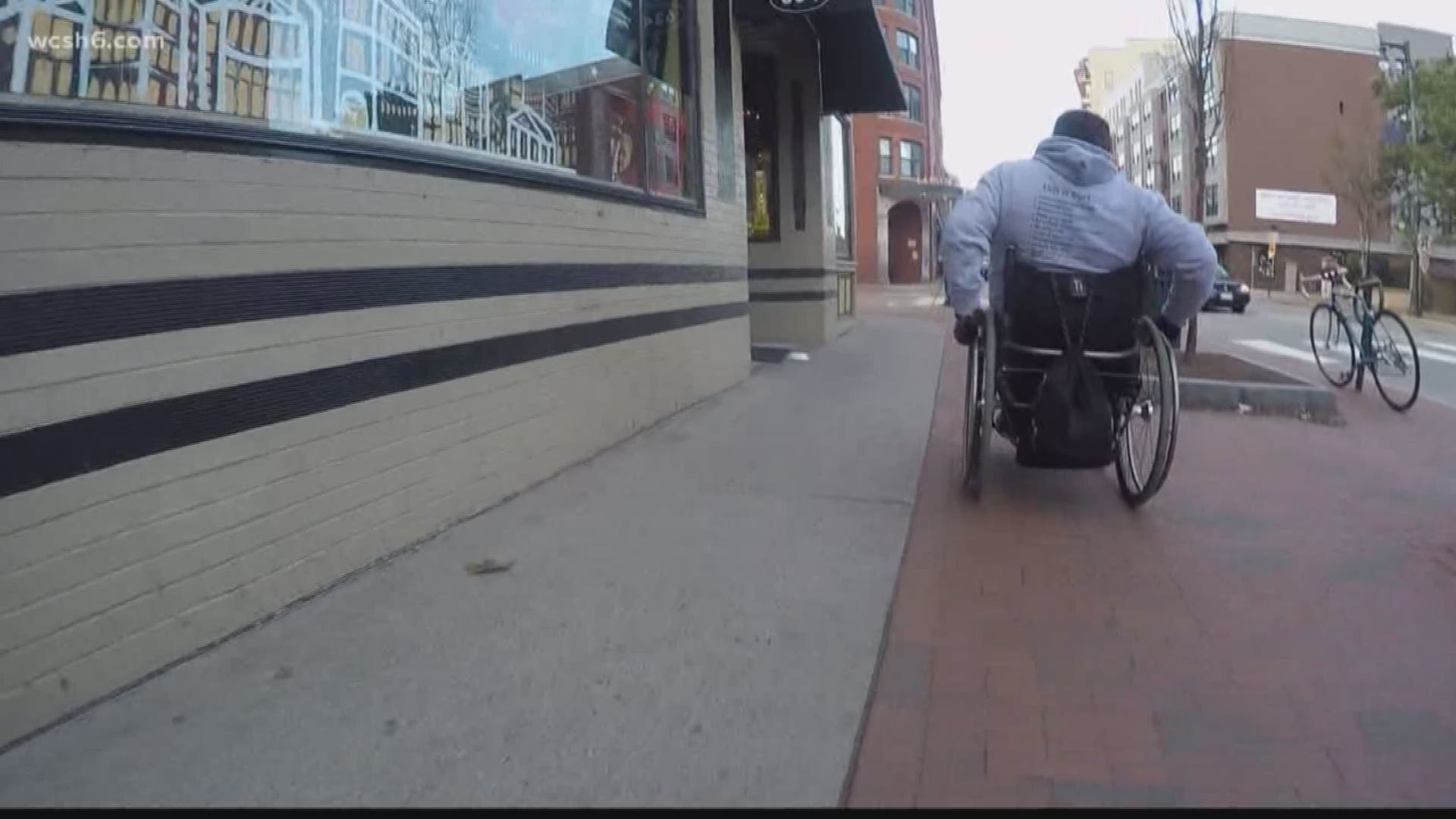PORTLAND, Maine (NEWS CENTER) -- The historic sidewalks of Portland made of brick and cobblestone draw attention and praise from those walking the city, but they get a much different reaction from those living with disabilities.
Mike Conkright lives in Portland and uses a wheelchair due to a car crash in 1991 that left him paralyzed from the chest down. He said his wheels have gotten stuck in cracks, causing him to fall out of his chair and onto the ground.
"It's like going cross country in a four-wheel drive through the woods," said Conkright. "Everybody needs their world to be accessible to them."
In an effort to raise awareness, Conkright challenged Portland mayor Ethan Strimling to see the city from his perspective, and took him on a wheeling tour of the city side-by-side, with Strimling using Conkright's spare wheelchair.
"It teaches you when you're actually in a wheelchair the difference between what a smooth sidewalk might look like and what it really is when you need it to be flat. That lesson has given me the insight I need to make sure our city is as accessible as possible," said Mayor Strimling.
Strimling said he has talked with city manager Jon Jennings about ways to secure funds to improve the city's infrastructure.
The Americans with Disabilities Act requires a number of regulations on state and local infrastructure built after January 26, 1992. However, state and local governments are not always required to modify construction built before that time.
According to the US Census Bureau, more than 11 percent of people in Maine under the age of 65 lived with a disability in 2016.
"I don't resent anybody. I don't hate anybody. I try to educate," Conkright said about people who do not live with a disability. "It's funny, because if you don't laugh at it, you're going to cry. And I don't have time for that."
Conkright suggested faux-brick sidewalks and other changes to curb ramps that would help people with all types of disabilities, including blindness, not just those in wheelchairs.
"There are solutions out there that we don't even realize," said Conkright. "Someone is carrying around a solution, but if you don't stop and talk to them, you're not going to find that out. "
Conkright also provides consultation services on ADA-related topics.

